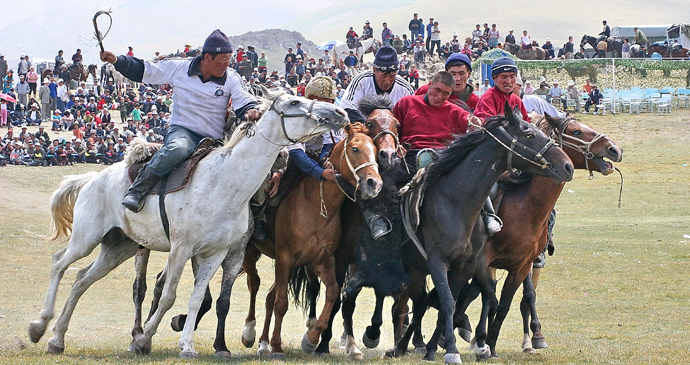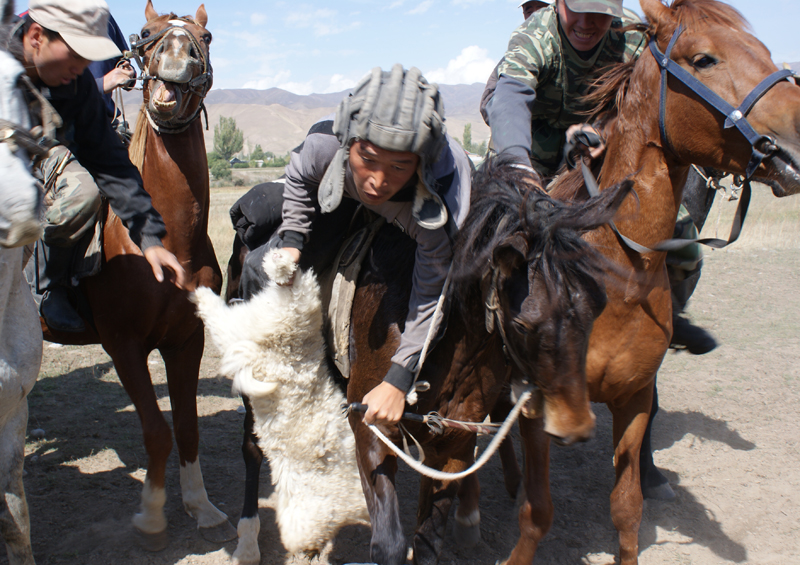Dead goat polo may not be the most charming name for a sport, but it does what it says on the tin. Raiding the neighbouring village is no longer in vogue, but in its place the Tajiks have a surrogate pastime: buz kashi.
Buz kashi is big business in Tajikistan, with clan pride and the carcass of a dismembered goat hang in the balance. Mounted armies up to 200 strong, armoured with rugby skull caps and whips, meet in battle on long, flat riverside pitches. Never mind the Premier League, this is the weekend’s real entertainment.

We saw our first buz kashi match high in the Pamirs one Navruz. Arriving ahead of the crowds, we watched a dozen or more horsemen careering down the hillside, an avalanche of men and beasts, panting and hissing, accompanied by a thundering of hooves. It was the start of two hours of testosterone-fuelled warfare.
Everyone is in high spirits and we pass round vodka to numb bruises. The goat, now well-tenderised, quickly disappears from view. We’d see it again at dinner.
The game begins when the referee, a fairly recent addition to the game, rides onto the field. Thrown across the pommel of his saddle was the goat carcass, prepared for the match with its head and legs removed and the resultant holes sewn up to prevent the spewing of entrails. He ran through the rules at break-neck speed, a term particularly suitable in this context. I’ll summarise the rules as no knives, no guns and no swearing (the last of which came as a particular surprise).
A final, acrid smelling cigarette was tossed to the ground and the referee cast out the carcass, backing his horse away in the split second before the players dived forwards. The leading horses circled the goat, trampling it whilst their riders bent down, arms outstretched, in a vague bid to grab a handful of fleece before being barged out of the way by another horse’s flank.

One man, hanging on with just one knee hooked into the saddle, finally caught the prize and, in a single movement, wrenched his body upright and pulled the goat into his lap. Even with the head removed, the carcass weighed in excess of 60lbs.
His breakaway from the pack was shortlived. The horses race neck and neck across the field, veins pulsing and sweat pouring from their bodies. The riders seem possessed by demons, roaring and screeching, their arms and whips flailing manically. Horseback fights break out: not only the goat is at risk of being trampled.
Dead goat polo may not be the most charming name for a sport, but it does what it says on the tin.
Unlike in regular polo, there is no change of horses during the game: even the walking wounded stay until the final whistle. Life at high-altitude has made the men hard but still, adrenalin is no compensation for extreme fatigue. The goat, now trailing guts and stinking, is barely in a state to be thrown.
The teams leave the field bloodied and bedraggled. Everyone is streaked with sweat, and the horses are limping after numerous collisions. Still, everyone is in high spirits and we pass round vodka to numb bruises. The goat, now well-tenderised, quickly disappears from view. We’d see it again at dinner.
